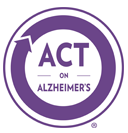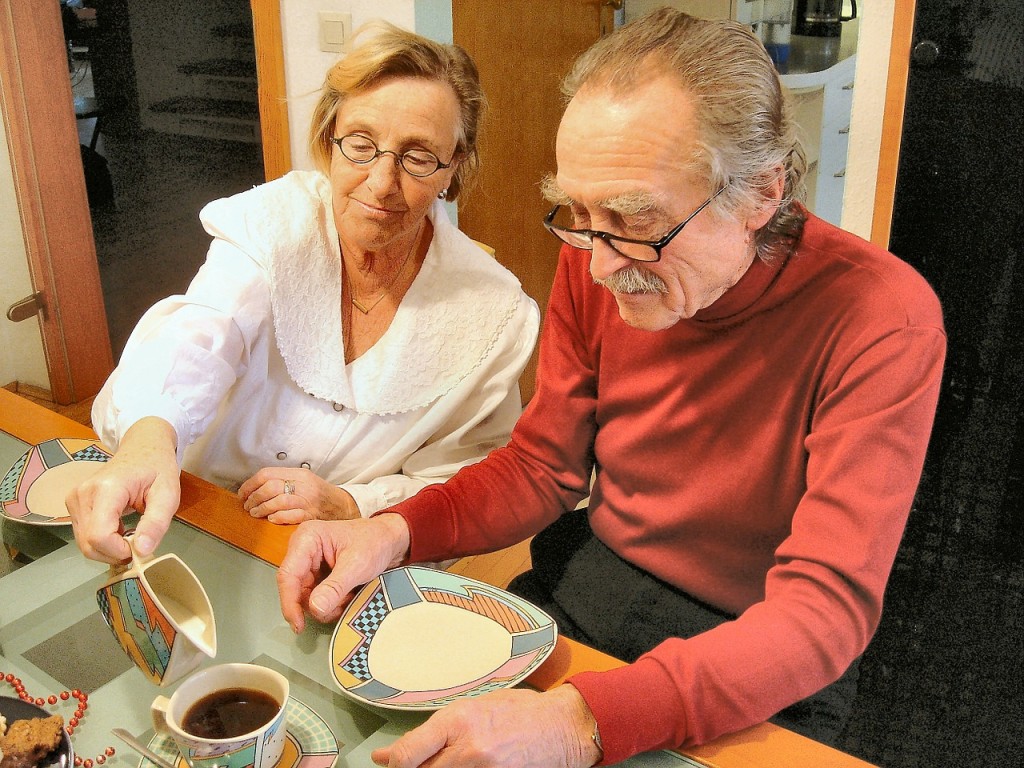Care Partners Memory Café is a casual, once-a-month gathering for people experiencing dementia and the family and friends who care for them. Some Memory Cafés are more formally structured, with an emphasis on education and advocacy. Other Cafés – like ours – focus on enjoying conversation and simple activities with people who understand the ups and downs of living with memory loss. Our Café meets the third Thursday of each month from 1:00pm-2:30pm at the Grand Marais Hub/Senior Center, 10 Broadway, Grand Marais.
What Happens at a Memory Café?
A typical Memory Café will include a time for gathering, refreshments, and informal visiting, followed by an activity or presentation. We may hear from a local artist or historian, create a craft, try our hands at a simple art technique, enjoy some music, or share some of our favorite jokes. Participation in any activity is always voluntary…but the emphasis will be on fun – not results – so we hope you’ll feel comfortable giving it a whirl! The evening will close with a quick wrap-up and announcements. We’ll have information about dementia available for you to take home if you’d like, and you can let us know if you’d like us to contact you about our other services, including Caregiver Support and Companion Visits.
Memory Café Benefits
- Cafés are a community-based way to support both the person living with dementia and their care givers, such as a spouse, children, grandchildren, friends, professional caregivers, etcetera.
- Because they are open to people at any stage of disease progression, many café guests are able to continue attending for months or years.
- For those who have not been diagnosed, a Memory Café can be a way to “dip a toe in the water.” Sometimes when people see that life goes on with dementia, they start to open up to more services.
- They help guests form new friendships. Many people meet at cafés, enjoy seeing each other at each café session, and then exchange contact information and get together outside of the café.
- Cafés provide an opportunity for those with dementia and their care givers to have fun together, not just to focus on problems and losses.
- Café staff and trained volunteers can model effective ways to communicate with those who live with dementia, and therefore offer a natural, low-key teaching opportunity to care givers and the larger community.
- Many cafés involve creative arts, because these draw upon aspects of cognitive functioning that are affected last and least by most conditions causing dementia. Cafés can help care givers learn creative activities and techniques that they can try at home.
- Cafés can bring in participation from many sectors of a community. For example, businesses can contribute food or sponsor a café. Local artists or musicians can facilitate activities. Students can volunteer. Cafés can help communities become more “dementia friendly.”
Why a Memory Café is So Important
According to US Census estimates, 27% (or over 1400) of Cook County’s residents are 65 and older, compared to about 16% statewide. In addition, Minnesota Act on Alzheimer’s reports that 1 in 10 in this age group has Alzheimer’s, and the annual number of new cases of Alzheimer’s and other dementias over age 65 is projected to triple by 2050.
People living with dementia and their care partners often become socially isolated. This is due to the increasing difficulty of engaging in everyday activities, compounded by the stigma that makes people feel unwelcome or embarrassed when symptoms occur in public situations. For example, someone who was a devoted member of a faith community may stop participating for fear of not being able to remember the names of people they’ve known for decades, or because friends at the congregation talk to their spouse rather than to them.
It’s not that people don’t care. In most cases, they lack information about Alzheimer’s and related disorders, and feel ill-equipped to interact with people living with these conditions. Service providers may also contribute to stigma without intending to, by calling anyone living with dementia a “patient” when they are not in a medical setting, and by treating them as more of a diagnosis than a full person.
The unfortunate result is isolation, which then brings many health risks, including the rapid worsening of dementia. Fear and stigma go hand in hand, and create a social environment in which many are afraid to acknowledge their symptoms and seek medical evaluation.
The Memory Café Movement
The first Alzheimer’s Café was launched in 1997 by Dutch clinical psychologist Dr. Bère Miesen, in Leiden, Holland. Dr. Miesen recognized that fear prevented many people from seeking a diagnosis and getting support from others. He said, “If you attend Alzheimer’s Café sessions you acknowledge that you have something to do with the disease…that’s a significant step for nearly everyone and is crucial to being able to live and cope with it…I personally find it a sort of ritual for getting rid of your fear. We all know that tragedy is not deep and sharp if it can be shared with friends.” (Miesen, 2010)
Dr. Miesen’s new café met a clear need, and the model spread through Canada, many parts of Europe, and Australia. Many cafés in countries where there is a public health system include a public health nurse, and can offer a diagnostic screening right at the café.
In 2008, Dr. Jytte Lokvig started the first Alzheimer’s Café in Santa Fe. That same year, Lori La Bey started Arthur’s Memory Café in Roseville, Minnesota. In the United States, some cafés use the term “Alzheimer’s Café,” and others use the term “Memory Café.” Some focus on providing information about dementia as many European cafés do, but most focus on socializing, and “respite from the disease.“
Cook County Memory Café

Care Partner Executive Director Kay Grindland learned about the Memory Café movement at a 2017 ACT on Alzheimer’s conference. With the warm, open format of Memory Cafés and an anticipated increase in the number of Care Partners clients dealing with dementia, Kay came to believe that this program could be an effective part of Care Partner’s efforts to develop a more dementia-friendly community.
After securing financial support through grants from the Lloyd K. Johnson Foundation and Live Well at Home, Care Partners got to work planning and organizing a Cook County Memory Café. Care Partners staff member Linda Dobosenski had a particular passion for the project, as well as prior experience with a cultural program for people with dementia. Although Linda moved away from Cook County, she continued as a consultant on the project with Care Partner’s current Volunteer & Program Director Christie John.
The inaugural Cook County Memory Café sponsored by Care Partners took place on February 13th, 2020 at the Hub/Senior Center in Grand Marais. Due to the COVID pandemic, the Memory Café had to close its doors the very next month. Once again, a scheduled re-opening for October 2021 had to be cancelled due to COVID. The Café was finally able to re-open November 2022.
(Information adapted in part from The Massachusetts Memory Café Toolkit developed by Beth Solsberg, MSW, MBA)




